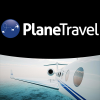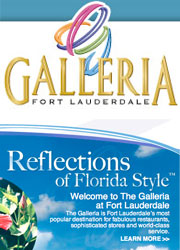 Gazing into the future to predict the next new things in science and technology is not just the work of a science fiction writer.
Gazing into the future to predict the next new things in science and technology is not just the work of a science fiction writer.
Government and business engage in this forward thinking too– it’s called “horizon scanning,” a fairly recent practice that involves systematically gathering a broad range of information about emerging trends to help organizations develop the capabilities they need to deal better with an uncertain and complex future.
FDA set up its own intra-agency horizon scanning group in April 2015 called the Emerging Sciences Working Group, which I chair. Our 15-member group meets regularly and includes representatives from FDA product and research centers as well as relevant offices.
With the mission of leveraging scientific expertise and resources to conduct long-range horizon scanning, we advise Agency and product center leadership on how emerging issues and cross-cutting scientific advances may affect FDA preparedness and activities across government agencies.
The fact is, FDA’s ability to achieve its mission relies on awareness and preparing pro-actively to address emerging issues and scientific advances that will affect the products FDA regulates five or more years in the future – well in advance of formal FDA regulatory submissions.
What kinds of new science and technology will alter the way FDA does its work? We are not focused on evolving areas such as nanotoxicology, since nanoparticles are already in some approved products even though the field is still being developed and understood. Our goal is to identify areas not yet addressed in current products like hibernation for surgery and brain-computer interfaces.
Once we have such information it can be used for science-based planning, programs, policies, reporting, and communication within and outside FDA.
It’s no surprise that FDA can’t possibly employ experts in every subcategory of scientific and technological knowledge. To cast a wide net, we are also seeking the advice of other government agencies that fund research, evaluate patent submissions, and develop scientific policy for the U.S. government — and that process has begun.
But it is clear that to fully horizon scan we must turn to experts in the private sector. That’s why today we are issuing a Federal Register notice asking science and technology experts outside of the government to submit their predictions on the next new things in their field of specialization.
To be clear, we’re not looking for advances that are already under discussion. We’re seeking information about scientific and technological advances that are so unknown they don’t show up – or barely show up – on a web search.
Your electronic submissions to our Emerging Sciences Idea Portal will be public so all confidential information should be submitted in writing. And there is no guarantee we’ll get back to you with a response – but we might if we’re sufficiently intrigued and want more information.
We look forward to your submissions. With your help, FDA will be ready to provide advice and to promptly review applications for products that truly represent the next new thing.
Donna L. Mendrick, Ph.D., is FDA’s Associate Director for Regulatory Activities at the National Center for Toxicological Research





















